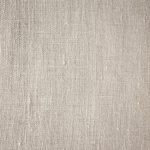You might not know that hypoallergenic fabrics can dramatically improve your quality of life if you've got sensitive skin. These fabrics, like cotton, bamboo, silk, linen, and hemp, are designed to reduce irritation and provide unmatched comfort. Organic options, free from chemicals, offer added peace of mind. What's more, they're not just good for your skin; they're also good for the planet. Curious about how to integrate these fabrics into your daily wardrobe and take proper care of them? Let's explore the benefits and best practices together.
Table of Contents
Key Takeaways
- Cotton is soft, breathable, and ideal for sensitive skin, especially organic cotton which avoids pesticides and chemicals.
- Bamboo fabric is silky, breathable, antibacterial, and keeps skin cool and dry, making it hypoallergenic.
- Silk is hypoallergenic, resists dust mites and mold, regulates temperature, and wicks moisture for sensitive skin.
- Linen is breathable, hypoallergenic, low-maintenance, and sustainable with inherent biodegradable properties.
- Hemp fabric is durable, breathable, hypoallergenic, sustainable, and reduces environmental footprint, suitable for sensitive skin.
Cotton
Cotton is often the go-to fabric for those with sensitive skin due to its softness and breathability. You appreciate how it feels against your skin, and it's easy to see why it's a popular choice.
However, you might also be curious about cotton alternatives and sustainable options that can offer similar benefits without some of the drawbacks.
Organic cotton is a fantastic alternative that minimizes your exposure to pesticides and chemicals, making it gentler on your skin. It's grown without synthetic fertilizers and pesticides, which is beneficial for the environment and reduces the risk of irritants.
However, organic cotton does have its drawbacks. It can be more expensive and less readily available than conventional cotton, and the certification process for organic textiles can sometimes be inconsistent.
When considering sustainable options, you might explore fabrics like Tencel or hemp, which are known for their eco-friendly production processes and hypoallergenic properties. These alternatives not only provide comfort but also contribute to a more sustainable fashion industry.
Bamboo
Bamboo fabric stands out as another excellent option for those with sensitive skin, offering a silky-smooth texture and natural hypoallergenic properties. You'll appreciate how bamboo fabric feels against your skin, almost like a second layer. But it's not just comfort that makes bamboo fabric exceptional; its sustainable production process guarantees that you're making an eco-friendly choice.
Bamboo is one of the fastest-growing plants, requiring minimal water and no pesticides, making it an ideal resource for environmentally conscious consumers. The fabric retains these eco-friendly benefits, providing not only a luxurious feel but also peace of mind. Bamboo's breathability is another significant advantage, allowing air to circulate and keeping your skin cool and dry. This is particularly important for those prone to skin irritations.
Moreover, bamboo fabric boasts natural antibacterial properties, reducing the likelihood of bacterial growth and odors. This makes it a superb choice if you have sensitive skin that's easily aggravated by environmental factors. You'll find that bamboo garments remain fresher for longer periods, adding to their appeal.
Silk
Silk often emerges as a top contender for sensitive skin due to its incredibly smooth texture and natural hypoallergenic properties. When you choose silk, you're not only investing in comfort but also in a fabric that's kind to your skin. The benefits of silk are numerous and well-documented, making it a luxurious yet practical option.
Consider these reasons to love silk:
- Hypoallergenic: Silk resists dust mites, mold, and other allergens.
- Temperature Regulation: Keeps you cool in summer and warm in winter.
- Moisture-Wicking: Absorbs moisture without feeling damp.
- Silk Production: This involves the secretion of fibroin by silkworms, creating a fiber that's both strong and soft.
- Silk Durability: With proper care, silk can last for many years, maintaining its beauty and integrity.
While silk offers many advantages, it isn't the only option. Modern silk alternatives, like synthetic blends, aim to mimic the texture and benefits of real silk but often fall short in hypoallergenic properties and durability. If you desire mastery over your wardrobe choices, understanding these distinctions can help you make informed decisions.
Silk, with its unique production process and unparalleled benefits, remains a premier choice for sensitive skin.
Linen
Linen, recognized for its breathability and natural fibers, is an excellent choice for those with sensitive skin. This fabric's structure allows air to circulate freely, keeping you cool and comfortable. Linen's hypoallergenic properties make it less likely to irritate your skin, providing a soothing alternative to synthetic materials.
When it comes to linen care, you'll notice it's relatively low-maintenance. Machine wash your linen garments on a gentle cycle, and use mild detergents to maintain the fabric's integrity. Avoid bleach, as it can weaken the fibers. To preserve its natural texture, line drying is ideal, though using a dryer on a low setting is also acceptable. Ironing linen while it's slightly damp can help smooth out wrinkles, but embracing its natural, slightly crumpled look is a stylish option.
Linen fashion offers timeless appeal, blending effortlessly with various styles. Its breathability guarantees you stay comfortable, whether you're wearing a casual summer dress or a crisp, professional shirt. Linen's inherent sustainability adds to its appeal—it's biodegradable and requires fewer resources to produce compared to other fabrics.
Hemp
Hemp, celebrated for its durability and breathability, is another fantastic option for those with sensitive skin. This eco-friendly fabric stands out in the world of sustainable fashion, offering not just comfort but also environmental benefits.
When you choose hemp, you're not just making a choice for your skin; you're also making a conscious decision for the planet. Hemp's natural fibers are less likely to cause irritation, making it ideal for those prone to allergies or skin sensitivities. Plus, the breathability of hemp ensures that your skin remains cool and comfortable, even in warmer climates.
The fabric's durability means that your hemp garments will last longer, reducing the need for frequent replacements and thereby supporting a more sustainable wardrobe.
Here are some reasons why hemp should be a staple in your closet:
- Eco-Friendly: Hemp cultivation requires minimal water and no pesticides.
- Durability: Hemp fibers are strong and long-lasting.
- Breathability: Keeps your skin cool and fresh.
- Hypoallergenic: Less likely to cause skin irritations or allergic reactions.
- Sustainable Fashion: Contributes to reducing your environmental footprint.
Modal
Modal is an excellent choice if you're looking for hypoallergenic fabrics, thanks to its remarkable softness and comfort.
You'll also appreciate its moisture-wicking properties, which help keep your skin dry and irritation-free.
This fabric is perfect for anyone with sensitive skin.
Softness and Comfort
Imagine wrapping yourself in a fabric that's not only hypoallergenic but also incredibly soft and comfortable against your skin. Modal is one such fabric, revered for its skin-friendly materials and sensory-friendly textiles. When you have sensitive skin, finding the right fabric can make all the difference, and Modal delivers on every front. It's crafted from beech tree fibers, making it an excellent choice for those who seek allergen-free fabrics with cozy textures.
Why choose Modal for softness and comfort? Here are some compelling reasons:
- Gentle on the Skin: Modal's smooth fibers are less likely to irritate compared to other materials, ensuring a comfortable wear.
- Breathability: This fabric allows your skin to breathe, reducing the risk of irritation and discomfort.
- Durability: Despite its softness, Modal maintains its form and quality even after multiple washes.
- Eco-Friendly: Derived from natural sources, Modal is a sustainable option that's also kind to your skin.
- Luxurious Feel: The silky texture of Modal gives you a sense of luxury while being practical for everyday use.
Moisture-Wicking Properties
One of the standout features of Modal is its exceptional moisture-wicking properties, which keep your skin dry and comfortable throughout the day. When you're wearing Modal, it efficiently absorbs sweat and disperses it, allowing for quicker evaporation. This means you don't have to be concerned about dampness or irritation, making it an ideal choice for sensitive skin.
The benefits of Modal extend beyond moisture management. Its durability guarantees that your garments maintain their shape, softness, and functionality even after multiple washes. You'll find that Modal fabrics last longer compared to other materials, reducing the need for frequent replacements.
Plus, Modal's sustainability is a significant advantage. Made from beech tree pulp, it's a more environmentally friendly option that requires less water and fewer chemicals during production.
However, no fabric is without drawbacks. While Modal excels in moisture-wicking, its price can be higher than other fabrics. Additionally, despite its durability, you still need to handle it with care to avoid damage from excessive heat or harsh detergents.
Caring Tips
To prolong the life of your hypoallergenic fabrics, always wash them in cold water with a mild detergent. Gentle washing is key to preserving the integrity of these materials. Avoiding harsh chemicals is equally important, as they can break down the fibers and trigger skin reactions. Choose a detergent that's free from dyes and fragrances.
Gentle drying is another crucial step. High heat can damage hypoallergenic fabrics, so it's best to air-dry them or use a low-heat setting on your dryer. This approach helps maintain their softness and hypoallergenic properties.
For best care:
- Wash in Cold Water: Cold water is less abrasive on delicate fibers, ensuring longevity.
- Use Mild Detergents: Choose products free from dyes, fragrances, and harsh chemicals.
- Air-Dry or Low-Heat Dry: High heat can weaken fibers; air-drying or low-heat drying preserves fabric quality.
- Avoid Fabric Softeners: These often contain chemicals that can irritate sensitive skin.
- Store Properly: Keep fabrics in a cool, dry place to avoid mold and mildew, which can trigger allergies.
Frequently Asked Questions
How Do Hypoallergenic Fabrics Prevent Skin Irritation?
Imagine the days of yore; hypoallergenic fabrics prevent skin irritation by using natural fibers and avoiding harsh chemicals. The benefits include reduced allergens and moisture-wicking properties. Factors contributing to skin irritation are synthetic materials and allergens.
Are Hypoallergenic Fabrics Suitable for People With Eczema?
Certainly, hypoallergenic clothing plays a crucial role in eczema management. When you choose hypoallergenic fabrics, your fabric choices contribute substantially to eczema relief, reducing irritation and helping you maintain healthier, more comfortable skin.
Can Hypoallergenic Fabrics Be Used for Bedding and Towels?
Can hypoallergenic fabrics truly enhance your bedding and towels? You'll discover they can. Opt for fabric types like organic cotton and bamboo. For longevity, follow maintenance tips: wash regularly and avoid harsh detergents.
Do Hypoallergenic Fabrics Require Special Laundry Detergents?
Yes, hypoallergenic fabrics often require special laundry detergents and fabric softeners. You should choose products designed for sensitive skin to maintain the fabric's hypoallergenic properties and prevent irritation while ensuring ideal cleanliness and softness.
Are There Any Hypoallergenic Fabric Blends Available?
Yes, you can find hypoallergenic fabric blends. Popular choices like cotton-bamboo offer benefits such as softness and breathability. Follow care instructions carefully to maintain their properties and guarantee maximum comfort for your sensitive skin.
- Tetron Fabric for Marine Applications: Durability and Use Cases - June 18, 2025
- Tetron Fabric for Outdoor Furniture: Weather Resistance and Care - June 18, 2025
- Tetron Fabric for Wall Coverings: Style and Application Tips - June 18, 2025







